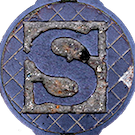Andre Vacha: Difference between revisions
(Created page with "{{Participant |Timezone=America/Argentina/Buenos Aires (GMT−03:00/GMT−03:00) |Affiliation=Minerva University |Projects=Abstract Poetry }} {{Workshop Submission |Interest=Our project, called Abstract poetry, is a semantic search engine which represents the contextual relationships between academic papers. With this first prototype, we aimed to push search from a frustrating, biased-by-popularity, and always incomplete process to one that was simple, unbiased by design...") |
No edit summary |
||
| Line 24: | Line 24: | ||
Our Team Page: https://curlprojects.com/ | Our Team Page: https://curlprojects.com/ | ||
|Organizer Topics=Discovery, Search, Contextualization, NLP, Bibliometrics | |||
}} | }} | ||
Revision as of 06:13, 21 October 2022
| Andre Vacha | |
|---|---|
| Timezone | America/Argentina/Buenos Aires (GMT−03:00/GMT−03:00) |
| Institutional Affiliation(s) | Minerva University |
| Relevant Projects | Abstract Poetry
|
| Group(s) | Table 5
|
Discord
Page Schemas#Creating a new Schema Page schemas is mostly a handy way to generate boilerplate templates and link them to semantic properties. A Form (using Page Forms is something that is an interface for filling in values for a template.
For an example of how this shakes out, see Category:Participant Template:Participant Form:Participant
- go to a `Category:CategoryName` page, creating it if it doesn't already exist.
- Click "Create schema" in top right
- If you want a form, check the "Form" box. it is possible to make a schema without a form. The schema just defines what pages will be generated, and the generated pages can be further edited afterwards (note that this might make them inconsistent with the schema)
- Click "add template" If you are only planning on having one template per category, name the template the same thing as the category.
- Add fields! Each field can have a corresponding form input (with a type, eg. a textbox, token input, date selector, etc.) and a semantic property.
- Once you're finished, save the schema
- Click "Generate pages" on the category page. Typically you want to uncheck any pages that are already bluelinks so you don't overwrite them. You might have to do the 'generate pages' step a few times, and it can take a few minutes, bc it's pretty buggy.
Workshop Submission
What's your interest in this workshop?
With what "frame" do you approach the workshop? (or identity)?
Tool-builder
What materials can you contribute to the workshop for consideration?
To provide a search that can more reliably return relevant results across even bigger stores of knowledge that we have now, we have created two working projects -
The first is a search engine. Abstract Poetry Search uses semantic embeddings to understand papers and their meaning and groups them based on similarity. It then asks researchers to react to papers letting the algorithm know which patterns and topics the researcher is most interested in. With this search, results are already grouped into the relevant fields that researchers want to explore. When a researcher wants to exploit a particular group of papers for all the related literature to their question, they can do so by simply continuing to leave positive impressions on papers in that group until the group stops returning relevant results. In theory, this could allow for an exhaustive search which returns all relevant papers in a specific field without returning to the search bar to change your query. Currently, however, our database is limited to PLOS, and the technical limitations above limit us from being fully exhaustive.
The second is a semantic bibliography. Abstract Poetry Bibliography takes in the DOI of a paper that a researcher would like to explore and returns all the references of that paper in semantic groups. This provides the researcher a high level view of the fields of research that the paper is pulling from and can allow the researcher to more quickly find the relevant research papers from a paper bibliography instead of surfing back and forth through the text and the references section.
Abstract Poetry Search: https://abstract-poetry.fly.dev/search (select the take a tour button below the search bar to learn how to interact with the interface)
Abstract Poetry Bibliography: https://abstract-poetry.fly.dev/bibliography
Abstract Poetry Landing Page: https://readymag.com/u192065531/3832227/
Our Team Page: https://curlprojects.com/
Organizer-estimated Topics
Discovery, Search, Contextualization, NLP, Bibliometrics
